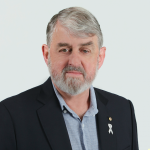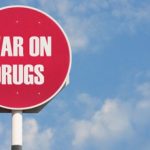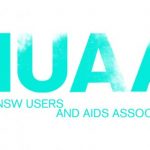Minns Needs to End the NSW War on People Who Use Drugs, as Have the ACT Labor-Greens

The onset of ongoing extreme weather events locally, the shutdown of the entire community due to the outbreak of a deadly virus, rent and mortgage prices skyrocketing and a general cost-of-living crisis have not served to dampen the fervour of the NSW police in its pursuit of personal drug use.
Drug dogs continue to appear at train stations and events, strip searches are still applied to those found to pose no illicit substances on a pat down, even though only a third of these occasions, at best, produce any illegal drugs in the end, and then, if it does, its usually a small amount of cannabis.
But whilst the crises of late did serve to turn the NSW polity away from its focus on ending the drug war, which saw Berejikilian dig in her heels and attempt to shut down the entire festival industry as an alternative, the ACT Labor Greens government has progressed on drug reform during this period.
The capital legalised the adult use, possession and home cultivation of cannabis in January 2020, whilst from this October, personal possession and use of the most popular drugs will be decriminalised, meaning no possible gaol time but instead, a caution, a fine or a diversion program.
However, the decade-long reign of the NSW Coalition has come to pass. And with the new parliament reflecting that of the ACT – Labor-led with rising Greens numbers – MLC Cate Faehrmann considers it’s now time for law enforcement to lay off policing recreational drug use.
The experts all agree
“We know the war on drugs doesn’t work,” Faehrmann told Sydney Criminal Lawyers. “Every year, we hear more stories about how aggressive policing of drugs has cost taxpayers millions for no social benefit.”
“All heavy-handed policing with drug dogs and strip searches has done is erode personal freedoms of NSW residents, traumatised people that may have not even possessed drugs, and caused riskier drug-taking behaviour,” the NSW Greens drug law reform and harm reduction spokesperson added.
Whilst Faehrmann reported witnessing the needless harassment of civilians in this manner at this year’s WorldPride festival in Sydney, her convictions are also supported by the findings of the Coalition-commissioned NSW ice inquiry, as well as the NSW coronial inquest into festival deaths.
These official inquiries recommended drug decriminalisation, ending the use of drug dogs and strip searches at events, as they promote dangerous, and sometimes lethal, drug-taking practices, as well as the provision of pill testing, which, since last year, has been a regular part of life in the ACT.
“Around the world, jurisdictions are moving away from the war on drugs, with more countries moving towards removing criminal penalties for personal drug use and legalising cannabis and even some psychedelic medicines,” Faehrmann underscored.
The writing’s on the wall
Former premiers Gladys Berejiklian and Dominic Perrottet were known for their closedmindedness when it came to the issue of drug use, and despite lashings of evidence produced by authorities to the contrary, they preferred to continue to preach “just say no” to the detriment of all.
While current Coalition opposition leader Mark Speakman argued for a watered-down form of decriminalisation against the rest of the Perrottet cabinet, and premier Chris Minns is on the record as having addressed the reform-minded in his party, and even having called for legal cannabis.
As it is, the NSW Crime Commission admitted in its 2015-16 annual report that despite the large drug seizures that Australian law enforcement prevent coming into the country, these efforts do nothing to stop the availability of the illicit substances international players do provide to the local market.
So, as NSW police, and its counterparts nationwide, can’t prevent drug supply, which is what prohibition is supposed to result in, its officers continue to pursue the end user to the point that the policing often causes the most harms related to these substances, especially in the case of cannabis.
“Drug prohibition wastes police resources and leads to police unfairly targeting young, low-income, and First Nations people,” added Faehrmann, pointing to numerous statistics and reports that have found when it comes to policing personal drug use, NSW police are a hazard to the community.
The NSW coroner determined that drug dog use at festivals leads teenagers to partake in dangerous drug-taking practices that have led to overdose deaths, while the Law Enforcement Conduct Commission (LECC) has found such policing borders on teen sexual assault in terms of strip searches.
Racist drug policing
The racial bias in policing on the part of Australian law enforcement is well known. This is evidenced in NSW by the fact that in the 2023 March quarter, 29 percent of the adult prisoner population was made up of First Nations people, who then only account for 3.4 percent of the general populace.
Faehrmann pointed to a recent NSW Bureau of Crime Statistics and Research report that found that this racial prejudice even underpins the cannabis cautioning scheme, which was rolled out in this state in April 2000 and permits those eligible to be cautioned for personal possession of cannabis.
The NSW Greens MLC explained that the report outlines that only one in ten Aborigional adults were diverted by the scheme, whilst 44 percent of their non-Indigenous counterparts were.
“BOCSAR specifically called out the eligibility criteria of the scheme as a ‘major source’ of this disparity,” outlined Faehrmann, “which tells us that the drug laws in this state are disproportionately designed to criminalise First Nations people.”
“Even in the case of those eligible for a caution, only 40 percent of First Nations people were cautioned, compared to 74 percent of non-Aboriginal people,” she continued, adding that this meant that when caution is an option, officers proceeded against more than half of Indigenous people.
This not only undermines the purpose of the cautioning scheme, Faehrmann made clear, “but it’s condemning First Nations people to a cycle of continued contact with the criminal justice system”.
Notorious delaying tactics
“The prohibition against cannabis for personal use is not only archaic, baseless and ignores harm-reduction efforts, but it has, and will continue to, disproportionately affect our most vulnerable citizens,” said Faehrmann, who’s recently given notice on her pending Legalise Cannabis Bill 2023.
The seasoned drug law reformist is also about to table legislation that would bring this state in line with what’s occurring in the capital of this country, in terms of ending the prosecution of people for personal drug use and providing a safeguard mechanism against poisoning in the form of pill testing.
These measures have all been sanctioned by ACT Labor MPs and legislation, with the support and input of the ACT Greens, who had long been championing such reforms in the capital territory.
“In NSW, the government continues to resist acting upon the key harm reduction recommendations from the ice inquiry and the coronial inquest into music festival-related deaths,” said Faehrmann, in terms of Minns having entered office with these expert reports already on the table.
And for his part, the NSW premier has stated his preference is drug reform whilst he was addressing pro-law reform Labor MPs in 2019, as well as in his commitment to holding a drug summit, similar to the groundbreaking Carr government conference on this issue held late last century.
The 1999 Drug Summit led to progressive initiatives, like the cannabis cautioning scheme and the Kings Cross supervised injecting facility, however, at that time, the state government hadn’t recently been handed two comprehensive inquiry reports detailing the way forward on the drug issue.
And as federal politics has shown us of late, honeymoon periods can often be used a delaying tactic prior to disappointing the constituency.
“They keep promising a drug summit sometime in the future,” Faehrmann concluded, in a somewhat frustrated manner.
“How long do we have to wait until we see sensible and compassionate reform here in NSW?”







